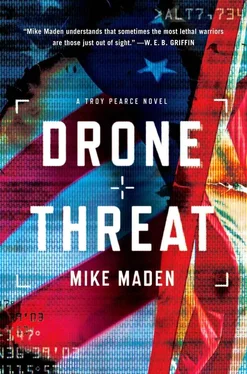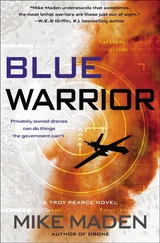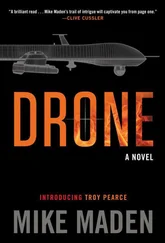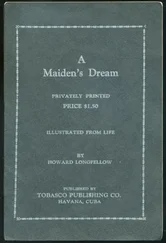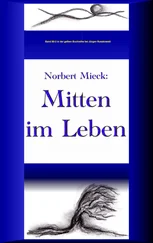“Maybe you don’t have the clearance.”
Grafton bristled. Security clearance was about the biggest status symbol in Washington there was these days, and hers was pretty damn high.
“You don’t have to worry about my clearance. Your government service is strictly ‘need to know.’ But Senator Floyd is also on the intelligence committee. He’ll ‘need to know,’ and if there are any skeletons you’re hiding behind these black lines, he’ll find out and use them against you.”
Pearce searched her face. What did she know? Pearce had left a trail of corpses across the globe, starting with his CIA service in the Special Operations Group in the War on Terror. Even Pearce Systems had been involved in the sanctioned killing of dozens of people around the world, including the United States. But in his rage and grief and sense of justice, he’d personally killed dozens more — in Africa, Asia, and even Russia. Was she just fishing, like Chandler, or did she really know?
“Shouldn’t be a problem.”
“We all have skeletons, Troy.”
“Show me yours first and I’ll show you mine.”
Grafton rubbed her forehead. A headache was coming on fast. “It’s going to be a long day today, isn’t it?”
Pearce checked his watch. “Not really. I’ve only got another five minutes before I have to leave. Got a plane to catch.”
“What? I’ve cleared my entire calendar today just for you.”
Pearce shrugged. “I’m sure you can fill it back up. Or, better yet, take the rest of the day off. The wheels of government will grind on without you.”
“I hope it’s damn important.”
Pearce stood. “It is. I don’t have a cushy government job yet. Still gotta pay the bills.”
“Then be here bright and early tomorrow so we can go over a few more things. Trust me, you’re walking into a minefield.”
“Won’t be my first.” Literally , he thought.
“Hearing’s at ten. Can you make seven?”
“Eight-thirty works.”
Grafton stood. “Why do I get the feeling you really don’t want to do this?”
“Maybe because I don’t.”
“Then why are you doing it?”
“I owe my country a lot. It’s the least I can do, even if it makes me want to puke.”
SEVIER COUNTY, TENNESSEE
Pearce gunned the motor again, flipping the paddles on the steering wheel, pushing the tachometer into the red again. The pit of his stomach dropped as the Mini Cooper S convertible went slightly airborne over the sudden dip in the paved two-lane road. The rental bounced on its stiff, sporty shocks when it landed and Pearce downshifted into a sharp hairpin curve. He knew he was driving way too fast on a road with too many blind curves. He didn’t care. He was having fun.
He loved this part of the country. He’d been here only once before a few years back, but it was beautiful here near the Smoky Mountains, and the people he met were great.
The road wound through rolling, grass-covered hills dotted with variegated greens of pine, maple, hemlock, and several other species he couldn’t identify. It was farm and ranch country with houses and outbuildings to match. But there were long stretches of road blemished by broken-down trailers or ancient barns crumbling into ruin, too. They weren’t much for building codes in this neck of the woods, and pride of ownership was optional. Around here he saw mostly cattle dotting the steep pastures, but he knew that farther east there were a knot of apple orchards, and the fishing was pretty good on Douglas Lake — not that he’d have the time to dip a line this trip.
The next curve jumped up on him like a snake out of a hole and he turned hard into it, downshifting fast and letting up on the gas. The centripetal force threw him against the shoulder belts, but the sturdy little car gripped the asphalt like a Formula One racer. The road dived violently down and then took another hard blind curve. He punched the gas anyway and geared up, turning the wheel hard, but he was moving too fast and the car crossed the faded yellow line—
A step-side Chevy pickup blared its horn and swerved hard out of its lane and into the soft gravel shoulder. Pearce barely missed sideswiping it by inches. He caught a quick glimpse of the driver, a thick lump of chaw pouching his cheek, his mouth open in a cursing scream. Pearce downshifted and slowed enough to check his rearview mirror. The truck was throwing dust as it skidded to a stop just inches from a rocky outcrop. Relieved, Pearce punched the gas again and raced ahead.
The GPS map flashed when he arrived at the address twenty minutes later. Good thing. He nearly sped past the weathered hand-painted metal sign that read Goose Gap Farm. He turned in toward the shuttered steel gate and stopped. An incongruous security camera was perched on one of the gateposts. A blinking red light finally turned to a solid green and the steel gate swung open. Pearce nudged his car forward past the security camera and over the thumping cattle grate before his tires began crunching on the gravel road. The narrow track headed straight toward a steep hill, beyond which stood his destination. He punched the gas again and the tires spun. Pearce felt the rocks spanging against the undercarriage and no doubt stripping off some of the paint. He didn’t care. The rental was fully insured.
To hell with it.
* * *
Pearce stood by the half-ton Ford flatbed pickup, faded red and rusting. GOOSE GAP FARM was stenciled in white letters on the battered driver’s door.
“Good to see you, Virgil,” Pearce said.
“Same, for sure.” The two men shook hands. At least his grip is still strong , Pearce thought.
At nearly six foot six, the sixth-generation Tennessee native seemed even thinner and more gaunt than Pearce remembered him. He assumed it was the chemotherapy. The drooping Hickory shirt and baggy overalls added to the effect. The skin beneath Dr. Virgil Ponder’s neck was loose and his bald head was flaking badly beneath the stained orange-and-white UT Vols ball cap. Behind the thick lenses of his Soviet-styled frames, his big brown eyes seemed larger than normal. Other than the crazy glasses, Pearce thought Ponder could have been the stern-faced farmer in Grant Wood’s famous American Gothic painting. All he needed was a pitchfork to complete the ensemble.
Pearce saw that Ponder was irritated.
“Sorry I’m late. Got held up.”
“Time’s a scarce commodity these days.”
“I know. I blew it.” He nodded toward Stella Kang, his Korean American security officer. “I see you’ve already met Stella.” Stella was ten yards away, directly behind the flatbed, fiddling with a radio-controlled transmitter in her hands, its lanyard looped around her neck. A homemade radio-controlled Styrofoam airplane with a six-foot wingspan lay in the grass in front of her. The rear-mounted pusher-styled airframe featured a double tail and a boxy front fuselage that held the engine and electronics. Ponder had built the drone entirely from sheet insulation from Home Depot for about ten bucks. It was meant for function, not beauty.
Ponder grinned. “Stella’s a pistol, all right. Where’d you find her?”
“On my island of misfit toys.” Pearce had recruited Kang years ago, straight out of the army, where she’d flown Raven surveillance drones, and she’d since become the mainstay of his personal security team. But she was still a helluva drone pilot.
“Well, I supposed we’d best get after it,” Ponder said. “Time’s a wastin.’”
“Show me what you’ve got.”
Ponder waved Pearce toward the back of the flatbed. Pearce followed.
He’d first met the towering physicist at Operation Black Dart several years before. The Pentagon’s annual anti-drone exercise lasted two weeks and only select corporations and government agencies were invited to participate. The event was designed to showcase advances in anti-drone technologies and tactics. The Pentagon understood that both advances and failures at Black Dart could provide useful information to America’s enemies in the looming drone wars, so the results were kept secret from the press.
Читать дальше
